HSE Ranks Among the World’s Top 50 Universities in Three QS Subject Rankings
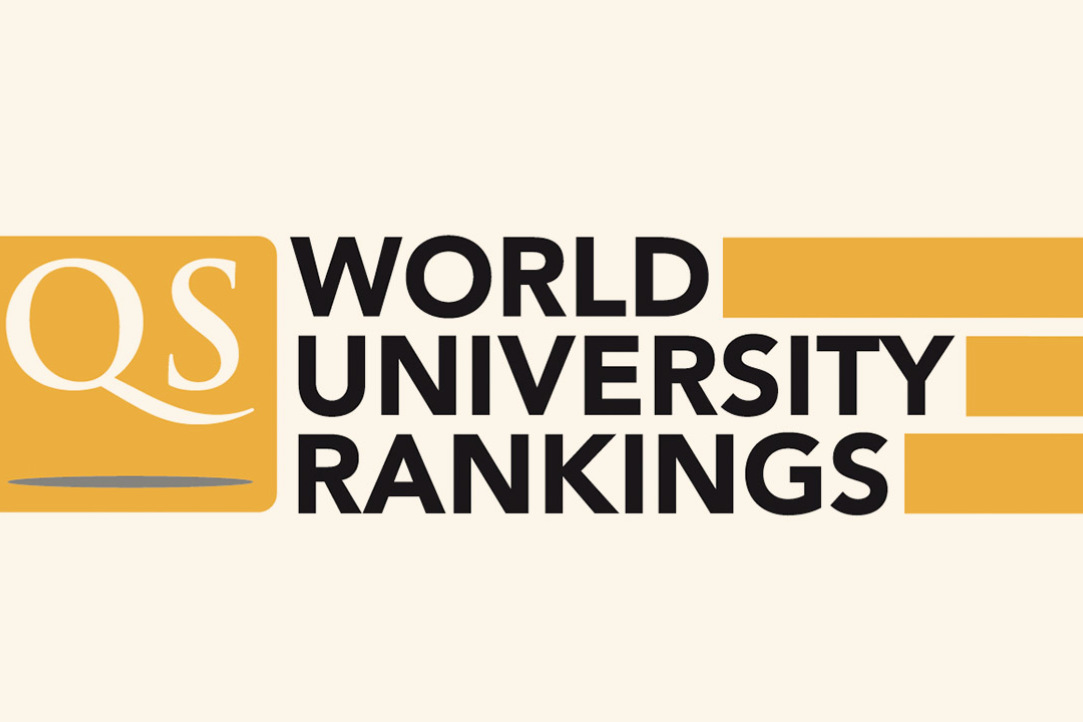
HSE University has expanded its presence in the top 50 of QS subject rankings, placing in two additional subject rankings. HSE is represented in 4 of the 5 broad subject areas ranked by QS, and it has significantly improved its performance from last year in almost half of the individual subjects rankings in which it is included.
HSE University is ranked 45th among universities worldwide in Politics and International Relations, 48th in the subject area Social Sciences and Management, and 50th in Sociology, maintaining its position in these three rankings as the highest-ranked Russian university.
In 6 other subjects, HSE ranks in the 51-100 range after breaking into the top 100 in Education (64th), Mathematics (95th), and Philosophy (51-100 range).
In total, HSE ranks among the top 150 universities worldwide in 18 individual subjects and broad subject areas. In 4 of these, HSE entered the 101-150 range for the first time: Art and Design, Psychology, Geography, and Law.
HSE is the top-ranking Russian university in 10 subjects: Art and Design (where it is the only ranking Russian university); History; Psychology; Geography; Accounting and Finance; Business and Management; Economics and Econometrics; Education; Sociology; and the broad subject area of Social Sciences and Management.
-
1st place
among Project 5-100 universities in terms of the number of individual subjects and broad subject areas placing in the top 50 of the QS subject and subject area rankings
among Project 5-100 universities in terms of number of individual subjects and broad subject areas placing in the top 100 of the QS subject and subject area rankings
among Project 5-100 universities in terms of the total number subjects and subject areas to place in the QS subject rankings generally
among Russian universities in 10 QS subject rankings
-
2nd place
among Russian universities in terms of the number of subjects and subject areas represented in the QS rankings
among Russian universities in terms of the number of subjects and subject areas represented in the top 100 of the QS rankings
-
THE ONLY UNIVERSITY
in Russia to place in the QS subject ranking in Art and Design
3 SUBJECTS AND SUBJECT AREAS
ranked in the top 50 of the QS rankings
2/3 OF HSE’S POSITIONS
in the rankings have improved from last year
HSE University earned its highest scores (more than 80 points out of 100) in the ranking’s methodological indicator of reputation among employers in the subjects of Education, Sociology, Psychology, Art and Design, Mathematics, and Computer Science, as well as in the broad subject areas of Social Sciences and Management, Arts and Humanities, Engineering and Technology, and Natural Sciences. In the indicator of academic reputation, HSE performed most strongly in field of Social Sciences and Management. In terms of citations, HSE saw its highest results in Sociology. And according to the Hirsch index, HSE made its strongest showing in Business and Management.
The 2021 QS subject rankings included 40 Russian universities, 16 of which are participants in Russia’s national Project 5-100. Since 2013, Russia’s representation in the rankings has increased twentyfold. 16 Russian universities rank among the top 100 universities worldwide in various subject rankings, and of these, 10 are Project 5-100 participants. Largely thanks to the project, Russia’s representation in the top 100 has increased sixteenfold. In total, Russian universities occupy 278 positions in the subject rankings. Of these, 167 are occupied by Project 5-100 universities, or 60%.
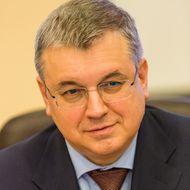
Yaroslav Kuzminov
'Universities participating in Project 5-100 have completed the project with great success. Half of the 21 participating universities in Project 5-100 rank in the top 100 range in various QS subject and subject area rankings. Three quarters of Russian universities participating in the QS subject and subject area rankings are participants in Project 5-100. This undeniably demonstrates the project’s success. The government and the participating universities have fulfilled the president’s project. Instead of 5 universities placing among the top 100 in various international rankings, we now have 10 universities placing in this range.'
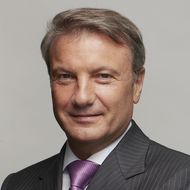
Herman Gref
Herman Gref, CEO and Chairman of the executive board of Sberbank and member of the HSE Supervisory Board, lauded the University for its achievements in the rankings. ‘HSE University is one of the best universities in the country that produces the most highly qualified specialists in various fields every year. We at Sberbank closely monitor the success of HSE students, and we give the most talented students the opportunity to prove themselves during their studies in special internship programmes and educational programmes for students.’
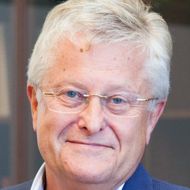
Andrei Melville, Dean of the Faculty of Social Sciences
HSE was able to improve its positions in the QS subject rankings in a number of disciplines of the Faculty of Social Sciences. This past year, we climbed from 48th to 45th place (2nd in Russia) in Politics and International Studies, and in Sociology and the broad subject area of Social Sciences and Management, we entered the top 50 range worldwide for the first time (ranking 1st in Russia in both of these areas). We believe that Project 5-100 largely contributed to this advancement in the international rankings. And of course, this is the result of our university-wide and inter-faculty efforts and initiatives. We continue to work on our academic reputation. Despite having to transition to online instruction, we have continued to expand our international network, host and participate in seminars and conferences, as well as develop our Master’s programmes, including those that are English-taught. The support we receive for faculty research projects, including interdisciplinary projects, is beginning to bear fruit with new publications appearing in top-rated journals. The opening of another new International Laboratory for Social Integration Research in 2019 also contributed to our advancement in Sociology.
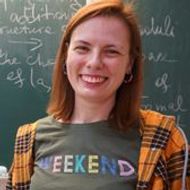
Alexandra Skripchenko, Dean of the Faculty of Mathematics
HSE’s entry into the top 100 of the QS subject ranking in mathematics is an expected but no less pleasant event. Other leading international rankings such as ARWU in 2018 and the US World & News Report in 2020 have already established the University’s membership in the top league of university education in mathematics worldwide. Our ascent in the QS ranking is important for us, since a significant part of the ranking’s assessment rests on the expert opinion of the professional community. Achieving its recognition is perhaps the most difficult barrier that a young university has to overcome (the Faculty of Mathematics accepted its first class in 2008).
I would like to emphasize that mathematics at HSE is not limited to the Faculty of Mathematics. The School of Applied Mathematics of MIEM, the Faculty of Computer Science, and the corresponding divisions of the Faculty of Economic Sciences, the HSE campuses, and other teams greatly contribute to its development. Our advancement in the rankings is a shared achievement of all the divisions.
Climbing the rankings is not a goal we set for ourselves as such. Rather, it is the result of our shared efforts to develop the scholarly and teaching potential of the University. At the same time, applicants from all over the world, and more recently from Russia, are paying more and more attention to universities’ positions in world rankings, and strengthening our positions in them will serve to increase students’ interest in studying at HSE and attract an even stronger and more interested applicant.
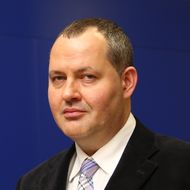
Sergey Pekarsky, Dean of the Faculty of Economic Sciences
The largest contribution to HSE’s improvement in the QS ranking in Economics & Econometrics was made by the University’s performance in the indicators of academic reputation and citations. These indicators reflect the visibility and quality of our colleagues’ research. We are constantly expanding the number of our international academic contacts — we work in collaboration with Western experts and research centres, and we conduct joint academic events. In recent years, not just the number, but the quality of our publications in the field of economics has grown: in 2020, several articles were published in top journals. The university recruiting programme has made it possible to attract highly qualified foreign specialists to the Faculty of Economic Sciences and the International College of Economics and Finance teams, as well as to our new international laboratories. Faculty programmes to support emerging scholars and research laboratories, the formation of research groups, as well as a modernized system of academic bonuses, which create the right incentives for fellow economists to promote their research, have had a positive impact.
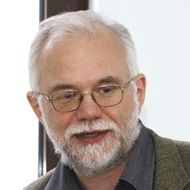
Mikhail Boytsov, Dean of the Faculty of Humanities
Our enviable places in the rankings are not a coincidence, not a gift, but the result of hard work. To be honest, we care not about the ratings as such, but about improving our professionalism, though this is what positively impacts our placement in the rankings. There are no secrets at work here. We publish a great deal in prominent publications. We have excellent colleagues. Alongside the best scholars of Russian history and Russian philosophy, we have brilliant experts of other countries and cultures. And since we have always fostered international contacts, we have carved out worthy places for ourselves in several influential academic communities at once, which has quickly bolstered the reputation of the HSE. Surely, linguists, too, have the capacity to climb even higher than their current position, and we have not yet reached our limit in Modern Languages. Having approached the very threshold of the top hundred in the broad subject area ranking in Arts & Humanities, we are tempted to cross it. However, maintaining our current positions is already an achievement. The competition is so strong that if you want to stay where you are, you have to give your absolute best.
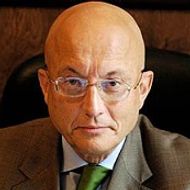
Sergey Karaganov, Dean of the Faculty of World Economy and International Affairs
I am pleased with the shared success of our faculty and the University, the international experts and our friends who are scholars in the neighbouring fields of political science and, of course, sociology. For us, this success is all the more pleasant, because it was achieved under the conditions of the new imposed ‘cold war’. And in our articles, with all our internal disagreements and diversity, we take very definite positions, perpendicular and increasingly in opposition to Western political correctness. So why this success? I would very much like to attribute it to the fact that we are discovering new topics and new approaches to the analysis of the world economy and world politics. In a number of areas, we are working together with new revisionist realists in the West. We have increasingly close ties with emerging Chinese, Indian, Korean, Southeast Asian universities and journals — and these are already very often Q1 publications. In recent years, we have enjoyed an overwhelming presence in special issues of these Q1 and Q2 journals.
There are other reasons as well. The transition to online learning clearly played a positive role. The Faculty of World Economy and International Affairs successfully transferred all flagship events online, thereby significantly expanding their audiences, and launched a YouTube channel. Already in the spring, FWEIA, together with its partner organizations Valdai and SVOP, launched a series of new online events that radically expanded ties with leading Western universities, and—and this is something that may have especially played a role in our ranking—with non-Western universities and think tanks. Their role in the ranking is steadily increasing.
The English-language version of Russia in Global Affairs is successfully establishing itself as a strong journal. In 2019 it became an HSE journal, and in 2020, it quickly entered the Q2 category for history journals on Scopus, which greatly enhances HSE’s academic recognition.
The faculty is successful in attracting foreign specialists who regularly publish in academic journals abroad. But, most importantly, almost half of all nationally and internationally recognized Russian international affairs specialists work at the Faculty.
We hope this contributes to the HSE’s position in the rankings. But for us, working with such colleagues is the real pleasure. And if this pleasure is spurred by our advancement in the rankings, then we have found a true formula for combining pleasure and business.
The QS rankings are compiled on the basis of four indicators: academic reputation, reputation among employers, the number of citations per publication, and the H-index, which takes into account the number of published articles per faculty member, as well as the number of citations per article.

